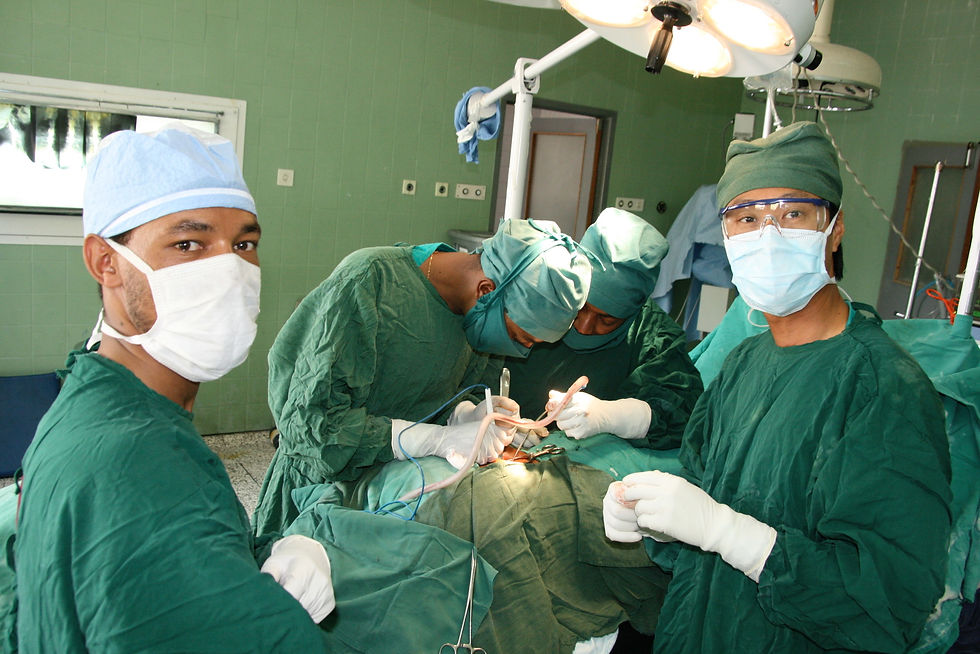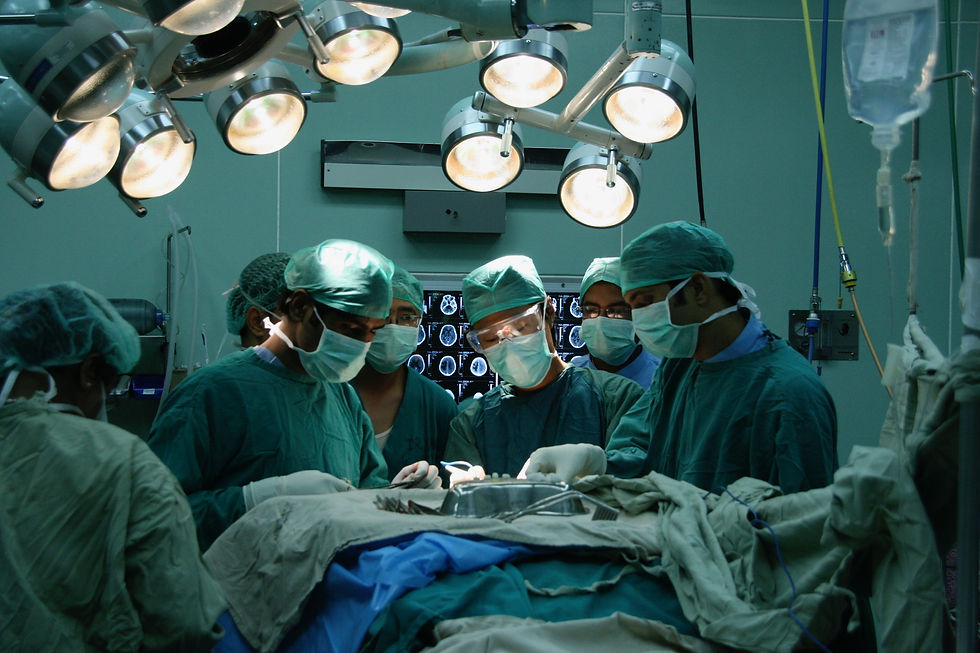Candidate for WFNS President-Elect
December 2025, Dubai UAE
Who is Kee Park?

Kee Park was born in South Korea. In 1963, the year he was born, Korea was one of the poorest countries in the world, still reeling from the Korean War. His family immigrated to the US when he was 10 years old. He graduated from Rutgers Medical School in 1989 and began neurosurgery residency at Temple University Hospital. He entered private practice in 1995 in Cape Girardeau, MO.
Kee Park never forgot his roots. After 12 years, he left a highly successful practice to join the Foundation of International Education in Neurological Surgery (FIENS) to help train neurosurgeons in developing countries. He volunteered for short-term teaching stints in Nepal and Ethiopia and decided to commit to training in Ethiopia. From 2008 to 2013, he travelled several times a year to Addis Ababa and worked alongside the young neurosurgeons there. He treasures the relationships he built during this time.

Kee Park at the Black Lion Hospital in 2008

Kee Park at Tribhuvan University Teaching Hospital, Kathmandu, Nepal, 2008

Kee Park at the Black Lion Hospital in 2008

Kee Park with Cambodian neurosurgeons and residents at the Preah Kossamak Hospital, 2013.

Phnom Penh, Cambodia, 2014

Phnom Penh, Cambodia, 2014

Kee Park with Cambodian neurosurgeons and residents at the Preah Kossamak Hospital, 2013.
In 2013, he moved his family to Phnom Penh, Cambodia, to lead the WFNS Cambodia Neurosurgery Support Project. Supported by visiting fellows, he collected data on all neurosurgery patients. His research on helmet compliance and TBIs influenced the passage of helmet laws in Cambodia. Being in Southeast Asia, he grew his network to include countries like Myanmar, Malaysia, and India. To this day, microscopes, drills, and instruments he donated through the WFNS Foundation are still in use in the region.
In December 2016, Kee Park led the process of making the Bogota Declaration on Global Neurosurgery – a call to neurosurgeons to address the global gaps in neurosurgical care through collective action. To map and track neurosurgical workforce in every country, Kee Park and his team conducted the first ever global neurosurgery workforce project in collaboration with the WHO and the WFNS. The data was used to create an interactive visualization map that can be found on the WFNS website. To better understand the current global neurosurgical capacity, he and his team undertook the research to estimate the global incidence of major neurological conditions and the gaps in care. This paper is now a landmark paper in Global Neurosurgery. Some of the systematic review papers involved in this project have become one of the most cited papers in neurosurgery.

Phnom Penh, 2014

Bogota, Colombia 2016

Kee's work

Phnom Penh, 2014
Through the years, Kee Park not only gave his time but has donated over $160,000 to the WFNS Foundation to provide equipment to surgeons in developing countries. 2016 was a pivotal year. He felt he needed additional training in global public health to be more useful. After he completed a fellowship in global surgery at Harvard Medical School and received an MPH from Harvard School of Public Health, he joined the faculty at the Harvard Program in Global Surgery and Social Change. During this time, he began working on Global Neurosurgery with a core group of like-minded people.
To lower the barriers for LMIC researchers to publish, Kee Park worked with his colleagues to create the Journal of Global Neurosurgery. There are no associated fees to publish, and all articles are open access. He currently serves as the editor-in-chief. In recognition of the importance of Global Neurosurgery, A Global Neurosurgery Committee was created by then president of the WFNS, Franco Servadei with Kee Park serving as the co-chair from 2019-2021, then the chair from 2021to 2023. Under Kee Park and Abdesammad el Ouahabi’s leadership, the committee achieved a consensus on the definition of Global Neurosurgery, the mission, and the vision of the committee. Not surprisingly, there was close alignment with the Bogota Declaration.
While Kee Park has proven his ability to bring people together and achieve remarkable things within our profession, he is also an expert on assisting health ministries in expanding
affordable and safe surgical and neurosurgical care to all who need it. He has led the development of comprehensive policy recommendations for neurotrauma as well as for
hydrocephalus and neural tube defects. These recommendations are not clinical guidelines but rather information for use by health ministries in shaping and expanding their health systems.


Boston Declaration on Global Neurosurgery 2025

Boston Declaration on Global Neurosurgery 2025

Boston Declaration on Global Neurosurgery 2025

Boston Declaration on Global Neurosurgery 2025
May this year, Kee Park, along with Ali Aziz-Sultan and Gail Rosseau, organized the Boston Declaration on Global Neurosurgery 2025. This incredible gathering marked the 10th anniversary of the Bogota Declaration by gathering over 100 pledges from societies and organizations around the world to support the effort to improve access to neurosurgical care for all who need it, wherever and whenever. Recently, an article about the Sierra Leone Neurosurgery Support Project was featured by NPR, a US media outlet. Kee is mentioned as the “connector” enabling a diverse group of partners to come together to bring the first ever neurosurgeon to Sierra Leone.
The article has been read over 100,000 times, and a YouTube video has over 200,000 likes.
Beyond being a globally respected leader in neurosurgery, Kee Park is particularly proud of his work with the next generation of neurosurgeons. A true role model, he is tirelessly mentoring, teaching, and inspiring students and trainees from all parts of the world, often including them in many of his research projects.
He established one of the first ever global neurosurgery fellowships at Harvard and serves as a mentor and board member of Mission:Brain, a global organization with 109 chapters across 27 countries. It is not surprising that many of his former fellows are now leaders in neurosurgery.

Describe your image

Describe your image

Describe your image

Describe your image






